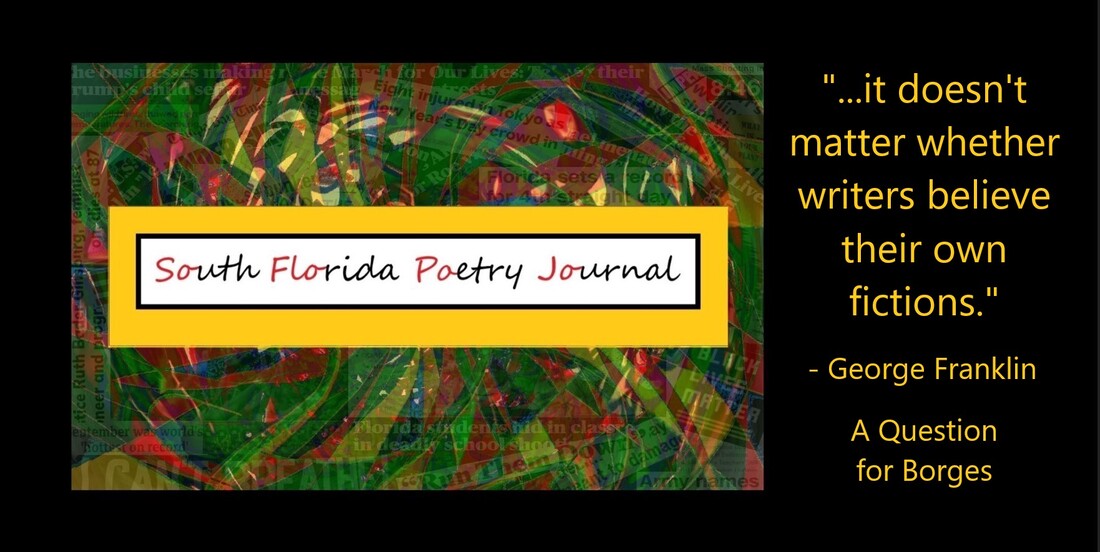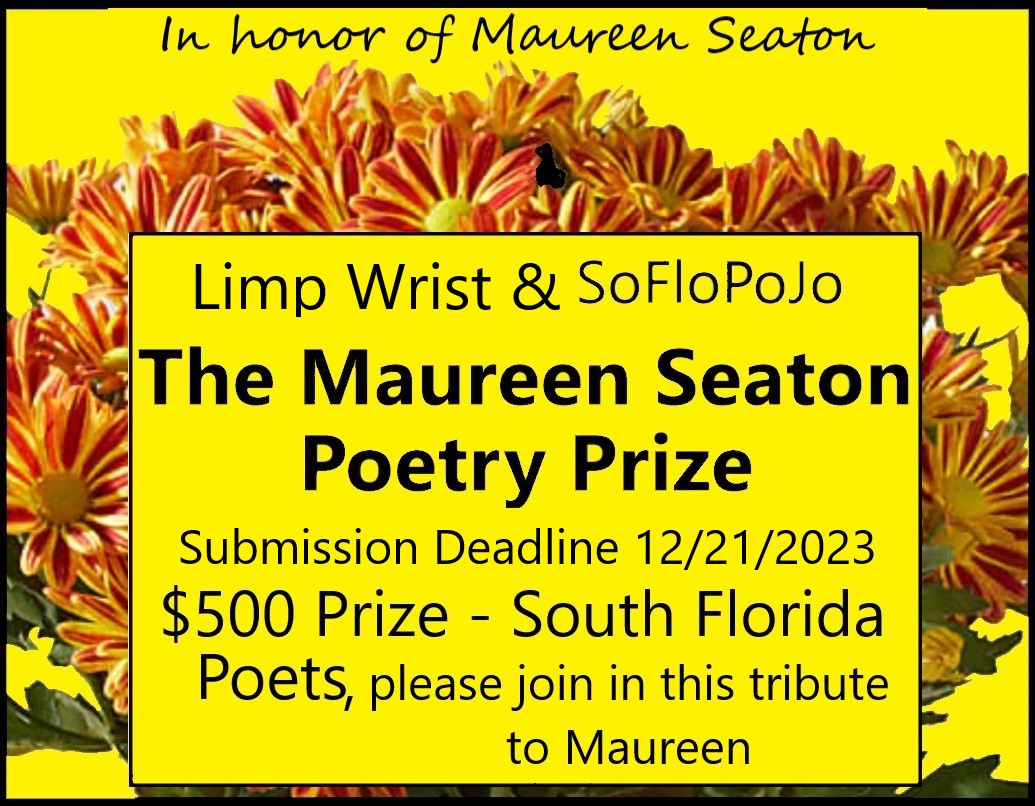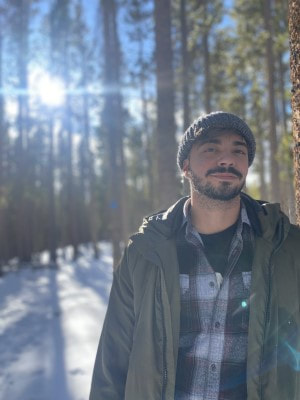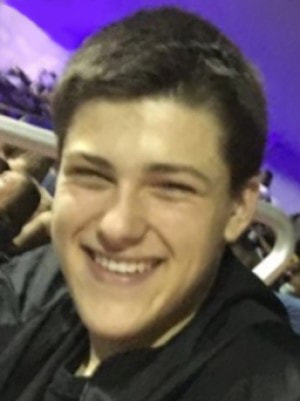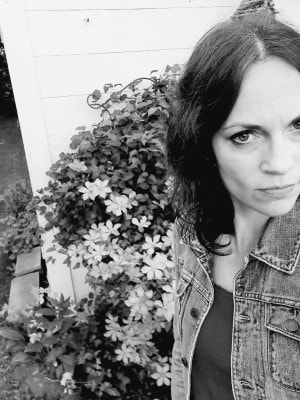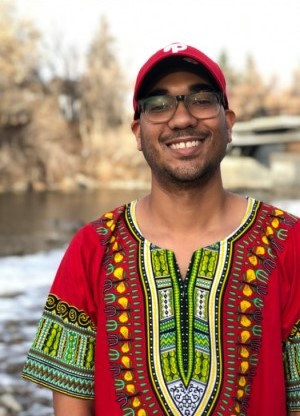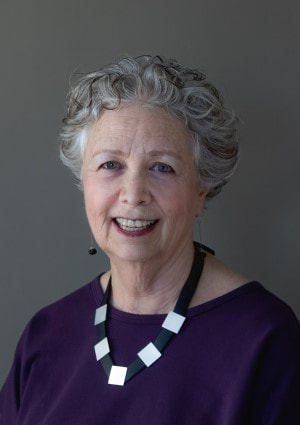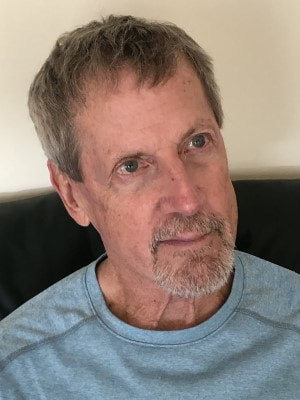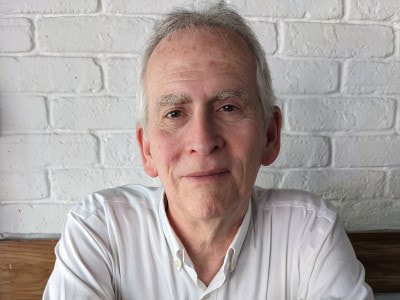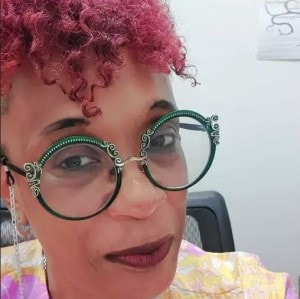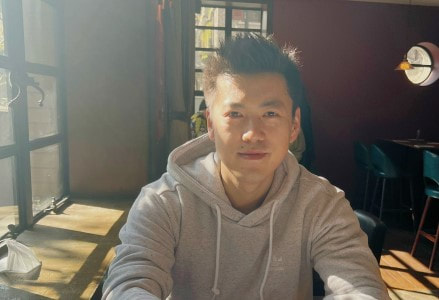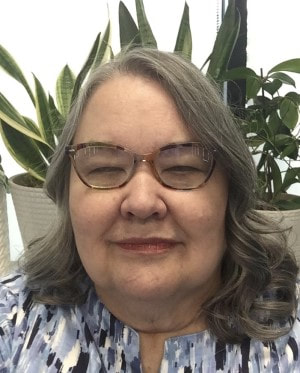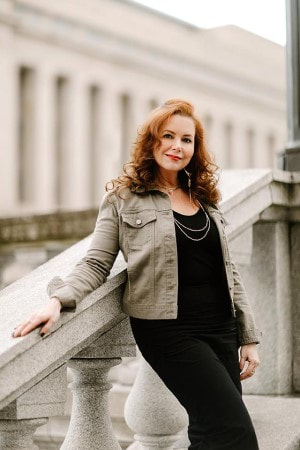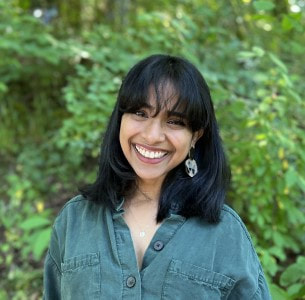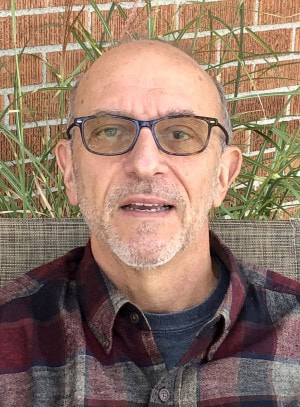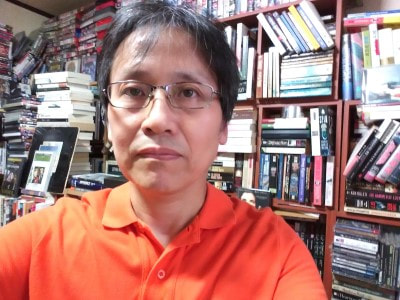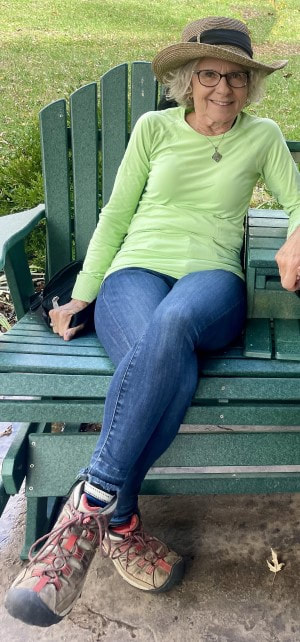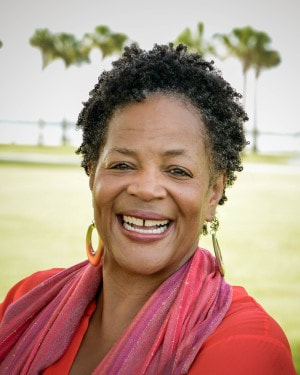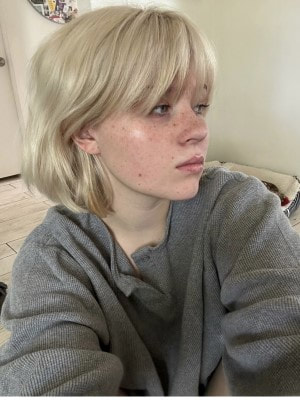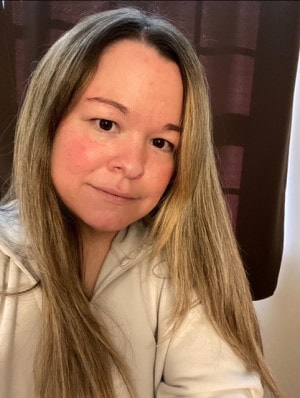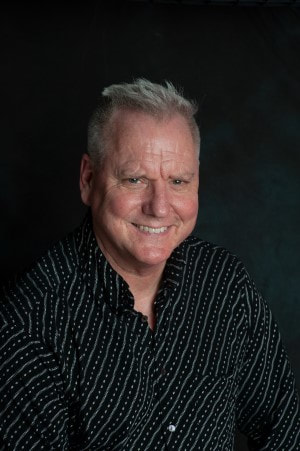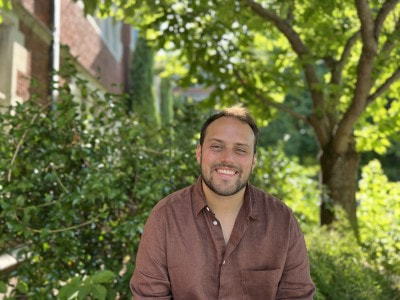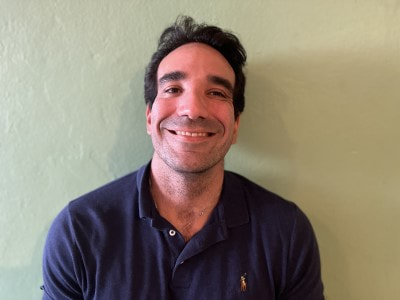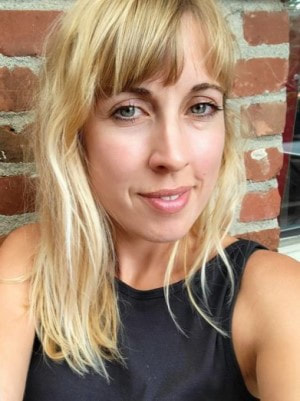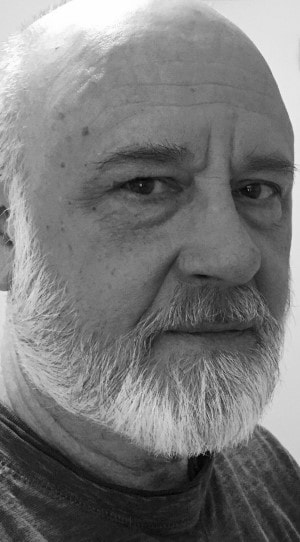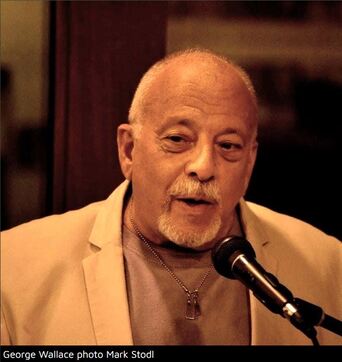Please REGISTER & VOTE in all of your local, state, and federal elections; click here for more information.
SoFloPoJo Contents: Essays * Interviews * Reviews * Special * Video * Visual Arts * Archives * Calendar * Masthead * SUBMIT * Tip Jar
November 2023 Issue #31 Poetry
Gary Allen * Arnaldo Batista * Julie E. Bloemeke * Roman Bobek * Bethany Bowman * Chris L. Butler * Eleanor Claire * David Denny * Wendy Drexler * Sunwoo Eom * Gary Fincke * George Franklin * Regina YC Garcia * Kevin Grauke * Michael Gushue * Aiden Heung * Sharon Weightman Hoffmann * Dana Kinsey * Carolene Kurien * Michael Lauchlan * Jong-Ki Lim * Lynda Madison * Tamara J. Madison * Al Maginnes * Daniella Marx * Capra McCormick * Sarah Mills * Daniel Edward Moore * Jarrett Moseley * Beth Brown Preston * Guillermo Rebollo-Gil * Esther Sadoff * William R. Stoddart * Caitlin Villacrusis * George Wallace * Laura Grace Weldon * Mikal Wix
Gary Allen
The invaders.
Mother, we have taken Belfast
Belfast is ours
here is one of me and my friends
arms together
strolling down Royal Avenue
here is one of us singing outside City Hall
and this is us with the local girls
who were fearful at first
but now ask for tea, sugar and cigarettes
I have a motor-scooter now
that I will send home with the three laptops
people are still sleeping in basements
cooking over open fires
there is no gas, water, electricity
and the mobile phone networks have been cut
trains are running one way now –
and they are all empty.
Gary Allen was born in Nr. Ireland. Widely published in international literary magazines including Australian Book Review, The Irish Times, London Magazine, The New Statesman, The Poetry Review, The Threepenny Review, etc., his selected poems will be published next year in London.
Arnaldo Batista
|
The Curse, or, the History of Men as Told through my Great-Grandmother’s Braid
My mother tells me the story of her mother’s mother, a mother she seldom saw, a native Guajajara daughter of a shaman who kept her meters-long white hair in a meters-long braid. Indeed, if my great-grandmother was Guajajarana, or Tocantins, or Guaraní, even descended from the devastated Murahã people, her history is lost to us. All but her braid, twisted over and under like the trunks of ash. My mother tells me she kept no brooms; instead, she spent nights brushing dust from her hair tips with a jade comb, singing, singing. Once, this mother, as a girl, beat the dust from her hair against a bed of rocks in the Lago das Pedras and through clouds of particulates and river mist, a Portuguese man saw her. He seized her, took her from the forests to the plains. He held her hostage in the flat valley between two mountains where the cisterns became her rivers, the gas street lights her new moon and stars. Over time, my grandmother’s braid thickened with cakes of dust, dragging heavy on the floor behind her. Over time, my grandmother bought a dense straw broom. At 100 years old, my widowed grandmother decided to cut her hair, the heavy grey braid snaking along the ground in a puff of white dust. After, she parted her bob with her jade comb while singing, singing songs of her Guajajara, or Guaraní, or Murahã grandmothers and soon after that My grandmother died.
They buried her with her braid. The dust settled—ash. Arnaldo Batista is a queer, Latinx poet inspired by the South Floridian ecology and culture. When he isn't writing, he teaches math to high schoolers who think he is pretty lame. Arnaldo's work has been a finalist for the Princemere Poetry prize, the Oscar Wilde award for Arlington Journal, and is forthcoming in the Gulf Coast Journal and Prairie Schooner.
|
Vacation at Porto de Galinhas
My father holds my hand by the water, leads me down the sand steps to the beach where he buys me virgin daiquiris in a coconut and rubs sunscreen on my back for sun burn, because he knows I like to watch the waves while he plays sueca with his brothers. This is our last day here with his brothers, the last day to buy ebony masks by the water, to walk down the shoals to the tip of Brazil, where the waves lap at tidepool homes of urchins that enjoy a little beach of barnacles and crabs. My father burns the paper of his joint, taps the ash into a coconut as he loses his card game. The coconut hisses our goodbye as we pack and leave his brothers, dripping salt and sand. His hand covers the burn on my shoulders as he takes me to buy water and açaí in a cup. I turn and watch the beach behind us, this background of salt stink and high waves. I want to whorl in them, those waves. I want to spiral and float on top of them like a coconut buoy, to be carried out to sea, land on some beach where all fathers are the same, all of them big brothers, burly with love. I drip down the road like water, this big feeling in my stomach, this muscle rug burn that nags and nags. My heavy thought trips me on a stone, the burn of my father’s palm slap on my back waves the cup of açaí up into a spiral, staining the cobbles in purple water. He slaps me, its sound, hollow like a coconut, calls me ungrateful like his brothers, never appreciating the value of food. The beach sings its lonely echo as the sun sets. The beach of crabs and barnacles sings somewhere, burns hot and sizzles as it drowns in the tide. It does not bother with me. It drinks my tears in with a laugh, waves it down in a gulp of green. Somewhere out there, a coconut tries not to drown, bobs up and down, sinks in the water. Vertical Divider
|
|
Julie E. Bloemeke
After The Promenade, Pierre-Auguste Renoir, 1876
The dress could be a winter storm, violent in its snow, the blue ribbon an invasion of sky, the blots of green and branch tangling against the silks, another subterfuge, another attempt to hold. It is the forest, in summer. Renoir did not name this. Someone suggested The Promenade, an odd choice for a dense wood, not an open air stroll, river hungry with space and other eyes. A man leads her by the hand, imploring the bark to part with his other set of fingers. Are we to think such seasonal lovers are willing an escape? I can’t help the downed thunder of her eyes, the tight fracture of her lips, her gaze more concerned with hem than with copse confined. Was it his idea to illicit off the path? Was this coyness a game of no she could not bear to free from her throat? I can only see another storm of white-- this one at his neck—as if to strangle, as if part of her winter spilled over, hoping his words were stop here. Believe the ice and swirl of this dress, the way she grips it—an attempt to keep something, anything, pristine. Julie E. Bloemeke (she/her) is the 2021 Georgia Author of the Year Finalist for Poetry. Her debut full-length collection Slide to Unlock (Sibling Rivalry Press, 2020) was also chosen as a 2021 Book All Georgians Should Read. Co-editor of Let Me Say This: A Dolly Parton Poetry Anthology (Madville Publishing, 2023) she is also the winner of the 2022 Third Coast Poetry Prize. An associate editor for South Carolina Review, her work has appeared in numerous publications. Visit her online at www.jebloemeke.com
Vertical Divider
|
Roman Bobek
Amputee
When things were good, my grandfather and I took walks in the mountains. We always chose the morning after a storm, when the snow flies poked their heads above the fresh crystal, scampering to find a mate on the mountain’s sheets. Once we found a fly with a pair of missing legs, hobbled, but alive. I read somewhere they survive the cold by amputating their own limbs. When ice creeps into their blood, their neurons detect the surge of heat before the freeze, triggering their muscles to eject the dying limbs. Last winter, my grandfather and I walked together for the first time in many years. I told him I could forgive him, if he’d let me. I reached for him and the heat surged up my arms. I thought I’d never let go again. He gasped and tore away from me, blood searing the snow, speckling my face. He ran toward the woods, his mangled stumps flailing in the breeze while I stood in the cold, holding his hands, holding all my love. Roman Bobek is a poet from Medford, Oregon, living in the Czech Republic. He majored in Creative Writing & English at The George Washington University. His recent poetry appears in The Shore and Beaver Magazine. You can find him on Twitter and Instagram @roman_bobek
|
Bethany Bowman
|
Originally from New York’s Mohawk Valley, Bethany Bowman has lived and taught in Indiana for over a decade. Her poems have appeared in journals including Nimrod, Apple Valley Review, and Poetry Online. Her first book of poems, Swan Bones (Wiph and Stock), was published in 2018.
|
1989
From childhood a faith deft as daisy stems poking through French braids; I could do anything by faith and it felt like ecstasy running through pine woods of prayer language and flute-like thrush, no one questioned my blush or song and even the man with Gigli-saw hands couldn’t stop my horns from growing strong-- like middle fingers peeking through squeeze chutes, like crickets in tall grass. |
Chris L. Butler
|
Pungent
A gaggle of disco balls spew light beams on the dance floor I soak the music into my veins and bob to the rhythm Cause lord knows I don’t wanna be sad no more I wish to be freed from doom scrolling. Even the funniest meme doesn’t match the warmth of your beloveds arms wrapped around your neck While you bounce together to the sounds of oontz oontz, Boom Bap, intentional record skips, Tejano tunes, the latest Drake song, and some trap musik. Don’t forget a little bit of dubstep distortion and 90s pop to remind me I’m in my 30s. Bring me these nights of peace at a place with familiar faces Where cocktail glasses clang cheers amongst the cigarette smoke I miss the moments before all the suspicious aroma of danger. When the only thing you worried about entering your nose besides Houston pollution, was an overabundance of cologne from some guy who thinks he’s less pungent than he actually is. When in reality he smells like the entrance of an Abercrombie & Fitch, or an overly rich European guy in a champagne room who thinks that metrosexual fumes should never be regulated I shouldn’t judge. In the seventh grade I once sprayed a hoodie of AXE Apollo across my body because I too, thought it was smooth to be a walking aerosol advertisement. I guess that’s marketing. The truth is, it only is cool if you’re actually getting paid. But not if you’re scent is knocking out nostrils like the mighty Joe Frazier with no honorarium. Nobody wants that prize. Seriously. Nobody. We want to light up the senses in a way that illuminates the spirit so much it would make the nightly fluorescence of Calgary Tower envious that evening. Lately, life's been a tougher climb than the Catskills. |
And From Time To Time We Smash The Plates
This Is Revolution Within the Mind Of Wheels That Keep On Turnin’ TowardsFeelings About The Things We’ve been unlearning shadows that overcast our horrible past Nobody talks about the times before When magical tales were told orally Prior to when paper dominated It feels like fables forbidden to be given to Black minds Just know these truths run track meets through the bloodline Just know You Can Still Be The Things You’ve Never Seen The eyeless wolf spider still finds his prey in the cave They say, when it comes to self-definition it's supposed to be Me But at the same time each one of us must recognize We’re all in each others milky way Smidgens of stardust shuffling to each other's orbit And From Time To Time We Smash The Plates We break the hinges of fancy cabinets in someone else’s dining room When You Sweat, you wipe away the expunged juice The only way you won’t be colder than Pluto Is if you wipe away the toxic doctrines Cause this is a revolution within the mind Towards Feelings About the things We’ve been unlearning Each moment of improvement nestles in the day Like a Russian Doll with the Doll Inside the Doll Until there’s an egg Don’t Ask me how to pronounce it The idea has been captured like I’m a method actor I’m on stage, bald with gold skin like the Oscar award For decolonizing my cranium, in scene six I cut the cord Habibi
The Amtrak glides across the local tracks in your hometown. East coast aromas take over the train station reflective of the ginkgo. The familial Philly stench illuminates your senses. Rank pollutants dazzle your nose hairs, now flickering like fireflies in the wind. To mitigate the home sweet frustration inside your sinuses, you trade the odor by ordering a jumbo dog from the halal hot dog cart outside of 30th Street Station. The man working magic inside of the food truck wands you a beauty spray painted with ketchup and mustard, garnished with relish and onions. You ask him how much, he tells you “it’s on the house habibi.” And for a second, all feels right. |
Chris L. Butler is a Black American-Dutch poet-essayist born and raised in Philadelphia, PA, living in Canada. He is the author of two chapbooks, most recently Sacrilegious (Fahmidan Publishing & Co, 2021). His work can be read in The Pinch, South Florida Poetry Journal, APIARY Mag, Variant Literature, Lucky Jefferson, and others. He is a 3x Pushcart Prize nominee, and a 1x Best of the Net nominee. He is the Editor in Chief of The Poetry Question, and the Associate Poetry Editor at Bending Genres.
Eleanor Claire
|
when I find out that you’re gone
for Maureen Seaton I. I think I want to throw away the poems burn them and scrub them from my tongue I think I want to give myself up, call myself winter and isn’t it beautiful how you can drown without water? breathe in the snow or dive into the grain-filled silo and isn’t it all the same thing anyway? waves of anything, it doesn’t really matter anymore it doesn’t really matter after all this time |
II. on the third day, when I think that the ocean has gone dry, I become the bay and the brine and you never asked me to pray, neither of us believe in that kind of magic but sometimes I wake up in the middle of the night, seawater in my throat, my dreams wrapped in miami, in pelicans and manatees, wrapped in your memory and all I have left are your poems and I think that’s a resurrection of its own I hope you haunt me |
blessed blood mother
after the passage by Janet Finch for Maureen Seaton the blessed blood mother comes with the rivers, abundant, lapping over the rockbeds and floodplains she comes with a roar, not the babbling brook of those dry valleys, not the canyon of your birth mother’s heart - when you cried out, you only heard echoes; evidence of all her hardened corners, or perhaps your own voice was still too brash for her to claim you but no, the blood mother comes with a hailstorm her arms outstretched in an eternal embrace the blessed blood mother comes with the holy downpour, the torrential effluence of love, that warmth you have searched for in graveyards, in hospitals, and your birth mother’s arms the blessed blood mother comes, transcending that which has always bound us, those restraints of history and distance the blood mother, she always comes to trace along your heart the gentleness you could never bear to surrender to yourself Vertical Divider
|
Eleanor Claire is a disabled, queer, and nonbinary South Floridian who works as a therapist in Chicago. She studied poetry at the University of Miami under Maureen Seaton and John Murillo. Their work has been featured or is forthcoming in The Cape Rock, In Parenthesis, DeLuge Journal, Plainsongs Magazine, SoFloPoJo - South Florida Poetry Journal, and others.
David Denny
|
Our Lady of the Butternut
At one point my Uncle Max spent a lot of time sitting on his roof. After breakfast he would climb the narrow stairs to the spare bedroom with the dormer window. He slipped outside and perched upon a small pillow, right there on the cedar shake shingles, in the shade of an incredible butternut tree. When we asked him what he did up there, he replied, A whole lot of nothing. According to Aunt Tilly, nothing included talking to the Virgin Mary, who sat beside him in holy silence. When he first began sitting with her, Aunt Tilly was full of questions, such as, What is the Holy Mother doing on our roof? What do you two talk about? Uncle Max showed relatively little interest in Aunt Tilly’s Virgin Mary questions. But when she asked what she wore, Uncle Max smiled through his big walrus moustache. Well, that’s an interesting thing—she wears a different outfit every day. One day she’s dressed for a fancy dinner, the next she looks like she’s going for a hike in the woods. Once she wore a man’s khaki uniform with an official-looking cap, like the gorilla keeper at the zoo. Really? Aunt Tilly said, because in all the famous paintings she’s in royal colors with a nun’s habit. And of course she’s holding Baby Jesus. That’s her job, Aunt Tilly said, to present Our Savior to the world, to nurture and protect us the way she did Jesus. So, has she got a message for the world today, like the message she gave to the children in Fatima? Does she want us to pray for anything in particular? Uncle Max said, She’s just a really good listener. Aunt Tilly had her own schedule to keep. She organized the quarterly meeting of the Republican Women’s Caucus at the Odd Fellows Lodge. She was President of the quilting guild and the primrose society. There was no end of busyness in the life of our Aunt Tilly. She had very little time to listen to anyone, let alone a crazy old man who spent his mornings sitting on the roof talking to a woman who apparently had nothing better to do than listen to the ramblings of a man who took pride in being a nobody, a man who did nothing day upon day upon day. |
A Sucker for Owls
We thought Aunt Tilly’s dementia had gone to a new level when she began to tell us about Uncle Max’s flying jaunts. It just seemed so unlikely that a man who groaned and shuffled from one piece of furniture to another could defy gravity in such a dramatic and beautiful way. But one day she called to tell us that Uncle Max had clipped a treetop in their neighborhood and ended up in the Emergency Room with pine needles in his ass. When we arrived at the hospital, the ER doc said, indeed, his injuries were consistent with the incident he described. He had called in a psych consult because it was warranted by hospital protocol. But the doc said at no time did he doubt Uncle Max’s sanity. He was calm and lucid, an amiable patient, considering the pain he was in and the location of his injuries. I flew too close to the owl’s nest, Uncle Max said. I have always been a sucker for owls, and their nests are hard to see because they value their privacy, as any sensible creature does. Uncle Max had heard the owls and seen their pellets next to the walking path, so he knew the general vicinity. I’ll tell you what, Uncle Max said, the ponderosa pine is not a forgiving tree. The reason the wind sings the blues through its branches is because each branch and twig is just as stiff and resolute as a Baptist minister in a gay neighborhood. And I’ll tell you one more thing before I go silent for the rest of the day, that ER doctor should take up the violin. Maybe it’s just the pain meds talking, but you’ve never seen such dexterity and precision. He said these things as Aunt Tilly propped him on soft pillows in the middle seat of our minivan. We don’t normally keep pillows in the minivan. Aunt Tilly had the foresight to tell us to bring some when she called. Proof, if we needed it, that Aunt Tilly’s dementia had not gone to the next level. All the way home from the hospital Uncle Max stared out the window while Aunt Tilly regaled us with details of the virulent tropical infections she treated during her time in the Army Nurse Corps. You might think such tales would be fascinating in a gruesome sort of way. I couldn’t help but wonder what thoughts were occurring to Uncle Max, as he contemplated, from the well-padded middle seat of our minivan, the depth and breadth and height of our wild suburban mysteries, the signs and wonders lurking behind the facade of blissful domestication. Vertical Divider
|
The Abiding Sense
My Uncle Max used to say the key to happiness
is a broken heart because until and unless
you find yourself damaged beyond repair,
you will constantly try to fix yourself, and in that
state you can never achieve true happiness
because you have not yet given up on it.
This from a man who spent three years
of his youth locked in a dungeon, allowed sunlight
at the whim of his guard who knew him only as
Maggot and treated him with all the dignity
such a tender nickname affords. Nope, Uncle Max
used to say, if you ain’t been broken by abuse
or neglect, you ain’t yet lived. To the unbroken,
a day on a beach with nothing but sunshine and waves
and nobody to tell you what to do is just another day
on planet earth. But to the traumatized, such a day
on earth may as well be a day in heaven. This was
one of many nuggets that he passed along.
He was a man of very few words, Uncle Max,
and yet in my memory, he is ever the sage.
Years later, the chill of cosmic loneliness settled
quite suddenly upon me, in the chest to begin,
tightening like a screw cranked ever tighter,
until grief welled up and erupted into a piercing wail,
followed by fits of weeping that swelled and swamped
me like a deep wave finally hitting the shallows
and surfacing with force enough to curl, peak,
and crash against the shore of my mind.
And within that suffocating swirl I said to my
then-long-dead Uncle Max, This is it, isn’t it?
This is the beginning of true happiness.
Welcome to the human race, my boy, he said
to my suffering little mind, from here on out
it’s nothing but hard tack and brackish water.
As someone said of my beloved Yeats, his abiding
sense of tragedy sustained him through
temporary bouts of joy. So may it be for you!
My Uncle Max used to say the key to happiness
is a broken heart because until and unless
you find yourself damaged beyond repair,
you will constantly try to fix yourself, and in that
state you can never achieve true happiness
because you have not yet given up on it.
This from a man who spent three years
of his youth locked in a dungeon, allowed sunlight
at the whim of his guard who knew him only as
Maggot and treated him with all the dignity
such a tender nickname affords. Nope, Uncle Max
used to say, if you ain’t been broken by abuse
or neglect, you ain’t yet lived. To the unbroken,
a day on a beach with nothing but sunshine and waves
and nobody to tell you what to do is just another day
on planet earth. But to the traumatized, such a day
on earth may as well be a day in heaven. This was
one of many nuggets that he passed along.
He was a man of very few words, Uncle Max,
and yet in my memory, he is ever the sage.
Years later, the chill of cosmic loneliness settled
quite suddenly upon me, in the chest to begin,
tightening like a screw cranked ever tighter,
until grief welled up and erupted into a piercing wail,
followed by fits of weeping that swelled and swamped
me like a deep wave finally hitting the shallows
and surfacing with force enough to curl, peak,
and crash against the shore of my mind.
And within that suffocating swirl I said to my
then-long-dead Uncle Max, This is it, isn’t it?
This is the beginning of true happiness.
Welcome to the human race, my boy, he said
to my suffering little mind, from here on out
it’s nothing but hard tack and brackish water.
As someone said of my beloved Yeats, his abiding
sense of tragedy sustained him through
temporary bouts of joy. So may it be for you!
David Denny is a poet and fiction writer. His most recent books include the poetry collection Some Divine Commotion and the short story collection Sometimes Only the Sad Songs Will Do, both from Shanti Arts. His work has appeared in The Sun, Narrative, Catamaran, Rattle, and California Quarterly. More info: daviddenny.net.
|
Wendy Drexler
Photo by Debi Milligan
Jamie Wyeth crushed a strand of his wife’s pearls,
mixed them with paint, tried and failed to capture the luminescence of a meteor shower. The world is better because it won’t last, the sun- set’s pink meme igniting the white hulls of the boats, the coast shimmering like a strand of pearls. Then poof-- the light fades, the marina flattens—it goes so fast, the pearly light, proof that time is hungrily shredding the seconds into shadows. Hunger is Jamie Wyeth crushing a strand of his wife’s pearls. Yellow- throated warblers are crushed pearls, too. Watching a bouquet of warblers swirl among leaves, fueled by hunger, I pull out of myself into their indecipherable dis- tances, rooms of branch and sky. I kneel beside a tidepool to recall how tightly barnacles hold on. Do they ever loosen? Jamie mixed the crushed pearls with white paint to stick himself to the sky. For Beauty. You can die for beauty. Literally. Lead white the deadliest pigment. Red lake: scaled beetles boiled with lye. Azurite from mercury cyanide. Yellow from ar- senic. Van Gogh, Correggio, Michelangelo—all likely poisoned. Take them out of the jewelry box, those chokers. Wear them. Choke on the uncrushable light. Wendy Drexler is a recipient of a 2022 artist fellowship from the Massachusetts Cultural Council. Her fourth collection, Notes from the Column of Memory, was published in September 2022 by Terrapin Books. Her poems have appeared in Barrow Street, Nimrod, Prairie Schooner, The Hudson Review, The Threepenny Review, among others, and forthcoming in The Sun. She’s been the poet in residence at New Mission High School in Hyde Park, MA, since 2018, and is programming co-chair for the New England Poetry Club. |
Sunwoo Eom
Self-Portrait as a Taxidermy
i. On rough carpet, daughters stain knees, crook spines to shape pot stickers. The eldest, eighty-one, tells us beautiful dumplings bring beautiful daughters. One arm away, uncles and brothers feast. I pray for all girls peeled, who strand their language of hurting across the bruising carpet grain. ii. In kindergarten, harassment is wrapped with a red ribbon as a sign of interest. There are things we should not want. I want to talk about the things we take for granted: he likes you, doesn’t he? That night, I dream about eomma[1] binding her daughter’s feet into lotuses. For some reason it’s always daughters. iii. In fourth grade, my twin runs the track before school during lunch eating less every day. 66 lbs and she thinks her legs are fat. Headlines whispers me all the ways to hate my body, to bloat with poetry Inherited X chromosome - which is to say I was born not to take up space iv. I have learned humiliation like choreography eomma thinks I have gained flesh I twice my portions in the guilt I consume lift my shirt each time I walk by the ajar bathroom door to check if I have lost the wanting like a void in my navel. I tuck my shirt back in, hide it from eyes seeking to fill. In school toilet stalls, I taste girls’ vomiting psalms eomma tells me never to be those girls. That night, eomma holds my hair until I retch Seoul onto the marble floor, Pacifics away. No animal feels the loss of a homeland more than a woman. All of us breaking bit by bit, leaving crumbs, spooning diet tips into each other’s dry mouths. Crossing the Pacific Ocean on a tongue, diet evolved from eating food to losing flesh. v. I am a baby in a red rubber tub, spoken to gently but never a hair unmissed. A flaw unscrutinized. Rebirth as taxidermy When baby decides to voice up they engrave her words on the shore at low tide make sure no one touches it forever until it’s drowned at high tide. _________________ 1- Korean for mother Sunwoo Eom is a Korean poet from Albany, California. She serves as the Alameda County Youth Poet Vice-laureate and editor in chief of The Deixis Review, a literary magazine that aims to dismantle systems of oppression. Her poetry, which has been recognized by the Alliance of Young Writers and Artists, is forthcoming in Eunoia Review and other journals.
Vertical Divider
|
|
Gary Fincke
Askew
Come soon, I said, before the doves arrive, returning to where the remnants of nest remain, where I was too late, last April, to hose them out before the eggs were laid, living with the stained siding, spattered deck, and the outdoor table and chairs to scrub before sitting to summer barbeques. Come soon, I said, February and March, the upstairs vent askew, emphasizing the second syllable like my mother as she bargained repair for a door blown broken by thunderstorm, that word’s long flight from the Twentieth Century landing like these persistent migratory birds. Come soon, I said, because now, a wind half that violent would strip the vent and make a weapon of it and that nest, exposed, would follow as if flung by some thoughtless vandal, a boy my mother shamed and slapped where three eggs scattered pale blue and broken beneath our one backyard tree, the storm door still askew, the repairman, by then, weeks late, my mother, that boy, an unseen bird squawking, the sky as cloudy as today’s, April turning middle-aged, a flurry of feathers beating the vent’s inside walls, the sky darkening, the brilliant ladder declared much too dangerous to extend in the accurately forecasted wind. Gary Fincke's poetry collections have been published by Arkansas, Ohio State, Michigan State, BkMk, Lynx House, Jacar, and Serving House. His next collection For Now, We Have Been Spared, will be published by Slant Books in 2024. Vertical Divider
|
George Franklin
A Question for Borges
He wore a blue suit and his hands steadied a mahogany cane As he sat with a straight back, staring toward the audience. It was a large room, somewhere in the library. The students Were down front, the rest of us crowded in wherever We could find a seat. I’d hoped to hear him recite poems, But there wasn’t much of that, just an interview, His translator, and the room uncomfortably warm. When they asked for questions from the audience, I held my hand up, unsuccessfully. Instead, A woman asked him about Donald Trump And the Westway Project. (This is a true story.) He apologized and turned his head toward his Translator. He knew nothing about either. I held my hand up again, but the translator Called on someone else. I wanted to ask about Nietzsche and eternal repetition. Was it just a literary device, Or did he think we’d come back to this room in Manhattan, Walk a second time the steps to the library? On the other side Of the campus, would Lipchitz sculpt again Bellerophon Taming Pegasus, black figures crashing through space? I thought It was a good question, but I was wrong. It was better The translator called on someone else. I was a belated adolescent, Asking the question only to show how closely I’d read, How much the work meant to me. Now, I’m almost as old As Borges was then, that afternoon at Columbia. I know That nothing is just a literary device, and it doesn’t matter Whether writers believe their own fictions. The Borges Who answered questions and shrugged when he thought They were unintelligible was not the same man as the one who Wrote “La noche cíclica,” but he wasn’t a different man either. We take the words as written. The room in the library, The woman asking about Westway, Bellerophon, Pegasus, Olympus distant and unattainable—they all are happening again, Right now, and the blind poet shrugging at the questions As though he were someone else, another Borges who, Also blind, had wandered onto the stage by mistake, He continues to stare at the audience, to hold his mahogany cane, To try courteously to answer. George Franklin is the first prize winner of the 2023 W.B. Yeats Poetry Prize. His most recent poetry collections are Remote Cities (Sheila-Na-Gig Editions, 2023), and a collaboration with Colombian poet Ximena Gómez, Conversaciones sobre agua/Conversations About Water (Katakana Editores, 2023). Individual publications include South Florida Poetry Journal, Cultural Daily, Rattle, and Another Chicago Magazine. He practices law in Miami and teaches writing workshops in Florida prisons. Website: https://gsfranklin.com/
|
|
Regina YC Garcia
Regina YC Garcia is an award-winning poet and language artist who resides in Greenville, NC. She has been published in numerous journals, reviews, and anthologies. Regina is the 2021 National American Heritage Poetry Award Winner, a 2021 and 2023 NCLR James Applewhite Semifinalist, and is the transitional poet in The Black Light Project.. She was also a poetry contributor to the Sacred Nine Project (Tulane University). Her book, The Firetalker’s Daughter was released by Finishing Line Press in March 2023.
Vertical Divider
|
Kevin Grauke
Still Life of the Near Future’s Sky
There were meadowlarks in my youth, but I know I won’t see them anymore. I think maybe they were barrel-chested, like feathered harps, but for sure I know they were the gold of both rod and rye, and their call was the lilting of summer. I fear, though, that I have them wrong, these birds that I loved. But it’s too late now to know—too late came too long ago. If only this were all there were to mourn, this indifferent plucking of the sky, but fires are now leaping from car to car to car on the highways, and shadows of men hawk mice and dazed lizards along the berms of the clotted roads. Soon the sun will be blotted out by the ink of ravens. And poems? They’ll be as useless as pennies. Kevin Grauke has published work in such places as The Threepenny Review, The Southern Review, Quarterly West, Ninth Letter, and Cimarron Review. He’s the author of the short story collection Shadows of Men (Queen’s Ferry Press), winner of the Steven Turner Award from the Texas Institute of Letters. He lives in Philadelphia.
|
Michael Gushue
|
FOUR SHORT ODES
1. Bubble Wrap Blistered fleece, basilisk molt, see-through bladderwrack quilt: you—savior of china, well-met chevalier of platter, tureen, goblet-- are, between finger and thumb, the still small grenade of my whim. 2. Spoon Straw Eternal question: Slurpee: liquid or solid? Only you know, candy-stripéd brain freeze conduit, centaur, hippogriff, bisexual utensil; silent, as if your sleeve’s sly truth would suffice: he who slurps last, slurps ice. 3. Band Aid You, stuck to memory as half-comfort, half-excoriation, were skin to skinned part: an elbow (scabbed for a year) or grated knee, pared finger, barked shin, flensed fore- head—you were a sterile paladin to each; like crayons, your color not flesh, but peach. 4. Barrette Hair’s grade school mezuzah thing, distaff emblem kin to Hermes’ wings, tortoiseshell sheepdog to round up stray protein filament. To hold chaos at bay you held me in your je ne sais quoi name’s grip: mystery wrapped in a humdrum hair clip. Vertical Divider
|
HOOVER
Do you like the way I vacuum? I learned it on patrol in an unnamed Mideast country. You’d be gobsmacked at how hard it is to vacuum up an entire Mideast country. The logistics alone are a turtle’s nightmare. We lost a lot of good soldiers in that campaign. Although we didn’t actually lose them. They mostly wandered away to bistros and ice cream parlors and took jobs as servers or scoopers. Also, it wasn’t really a Mideast country. It was New Jersey. I was just some kid with a vacuum cleaner and a dream, stars in my eyes, but only G2V class stars because I couldn’t afford a vacuum cleaner on my pay as a busboy at a chain restaurant. I had to use a dustpan and a cooperative squirrel I befriended when I was living on a park bench. We would share acorns and work together to mug the small dogs people would leave unattended while they had sex in the bushes. It all went sour when I got a job as Mr. Peanut in front of a Planter’s Peanut store on the boardwalk in Atlantic City. The squirrel tried to bury me for the winter. I’m done with squirrels I said to myself. But the emptiness inside me could not be filled. I was a hollow canister, a shell, always hungry, always whirling, nothing but dust bunnies inside. That’s why I like vacuuming so much. I’m not the loneliest machine in the world. |
Michael Gushue is co-founder of Poetry Mutual Press, a poetry incubator. His books are Pachinko Mouth, Conrad, Gathering Down Women, Sympathy for the Monster, and—in collaboration with CL Bledsoe--I Never Promised You A Sea Monkey and The Judy Poems. He lives in the Brookland neighborhood of Washington, DC.
|
Aiden Heung
Cappella
After Carl Phillips I. I miss the sea. How the blue holds infinite possibilities, even drowning is prophesied as hope. Sometimes one needs a schooner and the wind will come, a long lost friend, sitting by your side, amused at your mistake of ever wanting to set out, to go somewhere. You see not with your eyes, a Buddhist monk says, Let your heart be a mirror. All my failures are clear as hands. All my mistakes, stars leading to a hard, hard shore. II. Legend has when an eagle seeks to die, he first soars high to where no darkness but the honeysuckle sunshine clouds his mighty body-- then he plummets like one falls into a quick dream. I once stood at a plateau, beneath my boots, sprouts having stitched the black field with green. An eagle shrieked; no one answered his call. III. I steer my darkness like a boat, or a kite. I want a destination. I’ve traveled half the country believing in half the lies I sell to everyone. From factories to stadiums, from sun to moon, I hold a dream as a rusted coin in the pocket. Who’s to say cowardice is not a gilded form of bravery—I shun my life the way I coward before the sea, calm or boisterous, the lure, the ruin. Aiden Heung (He/They) is a Chinese poet born in a Tibetan Autonomous Town. After living in Shanghai as a traveling salesman, he quit his job and has relocated to St.Louis. His poems written in English have appeared in The Australian Poetry Journal, The Missouri Review, Poetry International, Cincinnati Review, Crazyhorse, Black Warrior Review among other places. He can be found on Twitter @aidenheung.
Vertical Divider
|
Sharon Weightman Hoffmann
Forgetting Never Works the Fucking Way You Want It To
When you're young, you think that memory will disappear like a reverse mirage, your deceit and bad behavior disappearing gradually, pixel by pixel. You imagine that memory fades in a wide swath, a fog that rolls in, a fine mist that obscures everything equally. But no. Forgetfulness never fucking works the way you want it to. Forgetfulness is glitchy, the picture breaking up in patches, a TV gone bad. Years later, I’ve forgotten the man's name, but still remember a song playing on the radio, that the blanket on his bed was blue. And what does he remember, if anything, of me? My eagerness, how my red hair looked on the white pillow, the same song? Not long ago, I saw a story about an aging ballerina in a nursing home. She does not know her name, who she is now, but recalls the way she danced as a swan, how she used to hold her hands, her arms. I would like to remember something so beautiful, but I don’t. What I remember is that I said I was someplace that turned out to be closed, and that the man who loved me drove by and saw that the lights were off, the building dark. Sharon Weightman Hoffmann is a writer based in Atlantic Beach, Florida. Publications include The New York Quarterly, Beloit Poetry Journal, Spoon River Poetry Review, Sojourner, Plainswoman, Alice Walker: Critical Perspectives (Harvard University Press), and Isle of Flowers (Anhinga Press). Previous awards include fellowships from Atlantic Center for the Arts and Florida’s Division of Cultural Affairs, and two Pushcart Prize nominations. New work is forthcoming at Showcase, The Banyon Review, Letters and Poetica.
|
Dana Kinsey
|
The Night I Met James McBride at Midtown Scholar Bookstore
I didn’t know he would make me laugh/with imitations/charming everyone/who, like me, was probably drawn to the tiny gold hoop in his ear/the ear that listened to the voice of Chona/asking her husband Moshe if he saw her as a cripple/declaring he’d have to move to a new house/without her/without her I might not know McBride’s grandmother/who he told us was never loved/ loved the way he made her loved in The Heaven & Earth Grocery Store/and you see, this is writer superpower/& wow/this man battled the mic stand a little at first/joked about how he now looked dumb before he even spoke/words validating my life/as teacher/I mean he actually said that/teaching is hard/ said his sisters were teachers/one still is/ he is/ but I failed to thank him/for what he’s taught me/about unlikely love/about sacrifice/about hopeless love/about hard work/about fighting for equality/about honesty/about unrelenting love/about James Brown & John Brown/who he once said was like John Coltrane/playing free jazz/exhausting all possibilities/ in his approach to harmony and improvisation/and then he imitated Miles Davis playing trumpet!/& now I can’t stop wondering/ how it is/that he stood on stage tonight/a foot from me/a foot away from what I wanted to say loud/enough to rouse Sportcoat/Hot Sausage/Little Onion/Liz Spocott/ then dinner-bell all his characters/ to a feast I cook/especially for them to savor/the million flavors/I’d infuse/like emotions he stirs in me/the last one just tonight/when he looked through my eyes/to my nourished-because-of-him soul/& held my hand/in his/his hand that usually types his first 50 pages/on a typewriter/those walk-on-water phrases/hard slaps/wild superstitions/humanity’s banter/ all rich amber in raw honey that dripped from him tonight /so much/ that I should’ve brought a jar |
Dana Kinsey is an actor and teaching artist published in Fledgling Rag, Drunk Monkeys, ONE ART, On the Seawall, West Trestle Review, MacQueen’s Quinterly, The Champagne Room, SWWIM, Wild Roof Journal, and more. Her poem “Show Me, Earth, Your Day," was a finalist in 2023 at Sweet Lit. Dana's play, WaterRise, was produced at the Gene Frankel Theatre. Her chapbook, Mixtape Venus, is published by I. Giraffe Press and was selected as a “Best Dressed” feature for The Wardrobe at Sundress Publications. Visit wordsbyDK.com.
|
Carolene Kurien
Partings
Your entire existence hinges on your ability to say goodbye. Goodbye to the tiny calciumed shingles decorating your gums, your tattered bunny, your violet hair. Goodbye to the lucidity of midday & the damndest finger with the yoyoing tricks, the violent dream of things. If only these hands could slap ragtime. If only this life could be improvised as well as jazz. When the sax blares its final note I feel unbearably sad but I feel only relief after I’m done petting the baby. I wish I wanted to know mothering. I wish I could inhabit the skin I’m in, that I could enter the hands that feed me cherry plums, but I can’t quite swallow the hypocritical I’m-permanence of it all. The knowledge of body as temporary lodging is the hardest thing to shove down the gullet. Also fish oil pills. Shit’s as huge as the 20th anniversary of the year my father was told a chemist from Saudi Arabia’s not going to make it in America after 2001. He agreed, & I decided to fail every chem class since then in solidarity. I’m pretty empathetic. Once in solidarity with the shag rug I didn’t shave for six months. Existence got prickly, but not as much as when I brought up suicidal ideation at my cousin’s birthday party. Apparently children shouldn’t be subject to this kind of talk. But, they too deserve to know the way of the world’s only the way of the world until the ocean’s on fire: then, everything they learned about water, the way it douses, turns wrong. The moon is wrong, the door is wrong, the way the body crumples like unfinished origami in the hands of someone wrong is wrong. Goodbyes are wrong because they’re either too drawn out or too quick. Most of us don’t know the perfect time to unwrap the lozenge & slide it down our throats, send a prayer up for the bodies walking in either direction at the station. Carolene Kurien is a Malayali-American poet from South Florida. She received her MFA from the University of Miami, where she was a James Michener fellow. A Tin House alum, her poems can be found in Verse Daily, Salt Hill, Redivider, Hobart After Dark, SWWIM, and Two Serious Ladies.
Vertical Divider
|
Michael Lauchlan
The Old Heavy in the Parking Lot
has been sitting there for years I guess most mornings like a smoker who goes out for a pack even after he’s quit and I just never noticed him in his big old Ford like something Gene Hackman would demolish while tracking heroin and brutalizing Harlem until a few days after George Floyd died when I heard him yelling into his phone about demonstrators–Shoot them Just kill them all and maybe he saw me glaring at his jowls or maybe he noticed a sign on my porch but now he makes a point of watching me while I’m walking, reading news on the phone or reading a poem aloud to the dog (her tastes are discerning but eclectic) and I of course am watching him wondering whether he’s armed whether he’s calling a retired crony whether he thinks he’s on patrol and whether he once was in just such an eight cylinder cruiser back when gas was cheap and no one cared much if you used your club. I’m obsessing I know about his rage his mornings and my sand grain role in his cosmos as he flits through my dim awareness like a vast beige butterfly and before I’ve picked up after my dog he’s been supplanted by other distractions and I’ve been stitched into the fabric of his talk radio rant or perhaps obliterated completely as he catches sight of a neighbor’s disarming smile why not we’re so strange this way hating straight ahead and then loving from the corner of our eyes what actually finally enters and fills us. Michael Lauchlan has contributed to many publications, including New England Review, Virginia Quarterly Review, The North American Review, Louisville Review, Poet Lore, and Lake Effect. His most recent collection is Trumbull Ave., from WSU Press.
|
|
Jong-Ki Lim
A melting poet
M, a once-famous poet, killed himself, after leaving some money to his niece, along with a note asking her to dispose of his body. His death was like an ominous premonition, like blood-rain in my dream to me. Not wanting to burden his parents, siblings and nieces with his corpse, my uncle could not die even if he wanted to. Alas, he would rather melt, like ice under the sun in the middle of summer, and disappear somewhere or evaporate without a trace. My uncle, a poor poet, struggled with countless letters, and fortunately, became letters, a poem. Lacan said letters kill, so maybe they can kill themselves. One day my uncle jumped up and down in a river and then melted, like a soluble fish* he said he'd seen once. Wow! Mum, look, uncle, the letters, a poem is melting. *It is the same soluble fish that the surrealist Andre Breton first recognized. Jong-Ki Lim writer and translator from South Korea. He has published various translated books of literature, humanities, social science, natural science, and articles on literature in South Korea. His book, The New Literary Revolution Of SF Tribes: The Birth And Soaring Of Science Fiction (original title: SF부족들의 새로운 문학 혁명, SF의 탄생과 비상)' is SF literary criticism. He has poetry published in Strange Horizons, Shot Glass Journal, and Wingless Dreamer, and is currently writing and translating in Seoul.
Vertical Divider
|
Lynda Madison
The ALS Sleepover
After I held my phone, cold against my cheek and my friend said It’s something they can’t cure, and I said, I’ll be there, and she sent her nurse away; After having sodas on her deck, she reached with her good arm for the green cup with the lid, knocked it onto her dog lying in the sunshine, and she whispered I am going to lose my voice; After she said she had to pee and I walked her to the bathroom, held her arms as she braced against ceramic, she said she didn’t care if her privates were exposed, her pants around her ankles; After we said it had been 50 years since our last sleepover, that time we lay in bed afraid of the birdcage across the room draped like the chopped off head in a Hitchcock movie and she whispered in the dark I wonder what it’s like to die; After she asked me to move her right leg for the night because she couldn’t, and I was flustered and moved her left one instead, and she snickered, and I snickered, and she snorted, and we laughed until we cried, couldn’t stop, couldn’t think, couldn’t catch our breath. Lynda Madison (she/her/hers) has published poetry and short stories in anthologies and journals, and eight nonfiction books. Most recently, Lynda won the Deane Wagner Poetry Contest, the St Louis Writers Guild’s Short Story competition, and the Flannery O’Connor Short Story Award from National League of American Pen Women. Lynda is a clinical psychologist and avid outdoor adventurer, who has been privileged to hike many mountains, experience a wide range of cultures, and know and respect many individuals’ life stories.
|
Tamara J. Madison
|
Salted
upon tracing my lineage back to the mid 1700’s Woke up this morning, nostrils flared, to the curdling smell of my own blood, sickled cells razor-sharp hacking a trail of destruction along my lineage. You, the quietly raging brute all up in and through my flesh, the reason my blood tastes like salt instead of sweet earth. Too many branches hewn from my family tree. Too many names unknown, souls unclaimed floating in the ambiguity of legal ledgers: 1, age 20, female, black 1, age 23, male, black 1 age 2, female, mulatto 1… 1… 1… You are the clearly visible yet dead branches, names, dates intact. For the life of me, this tree, I have yet to find shears sharp enough to prune you, water holy enough to cleanse the filth choking this tree’s roots. In the thereafter before God, do you still crave melanin, dark flesh for your supper? Do you crack your whips, spit on ghosts, castrate clouds in the thereafter before God? Carefully, I consider selling you to the highest bidder but my soul, my soul has no auction block. Vertical Divider
|
Supplication
Unlike the cliché paintings, sculptures and their endless replicas, I hold my hands open to pray, leave space between my fingers to sift debris, collect crystal, coin, paper, pebble, flex my palms that they may breathe what my lungs shrunken from exhaustion, my nostrils and mouth muffled cannot. Never closed, these praying hands, I cup them, leave them open just in case something holy falls. Transparency
Bound at birth, I am all tongue and teeth. I inherited the will of my fathers laced with the longing of my mothers. A procession of saints, haints and hosts fall from my mouth unannounced, their pageantry and plumage seeping through gaps in my teeth. They know I will speak though my heart stutters and wind breaks from my chest upon release. My tongue syphons tears, oxygenates blood spits amrita. Breath of smoke, I am burning bush wet with dew, hewn by soiled hands. My mouth, temple of the untold. Am I not holy? Poet, writer, editor, Tamara J. Madison, is the author of Threed, This Road Not Damascus (Trio House Press), Kentucky Curdled and Sistuh’s Sermon on the Mount (all poetry), and Collard County (fiction). Her writing is inspired by her ancestry and relations. Tamara has also shared her poetry on the TEDx platform. She is a MFA graduate of New England College and an Anaphora Arts Fellow (2021). She currently teaches English and Creative Writing in central Florida while completing a new manuscript of poetry.
|
|
Al Maginnes
The Dishwasher’s Day Shift
Over steel lungs of taxis that huff and boil, kick gouts of black exhaust into cell-chattering walkers who inhabit the sidewalks, while oil drips into asphalt, finds cracks it will seep through to stain dirt, to strangle the tiny host seeds of weeds that ache to push through pavement, the sky yawns emptiness into the stinking maw of the dumpster where the dishwasher goes to toss the load of lunchtime’s fish bones and grease, before a pocket of gravity reverses itself and he is lifted, stained sneakers kicking as he rises, then, failing that, attempts to assert his direction. Each thrash of his body takes him further from the place he believes he wants to land, further from the hours his paycheck relies on. But when he lets his body go still, he finds a spot among the narrow-winged city birds who blink and continue their long-rehearsed routines while he pivots over the river, drifts over the surface stained by rainbows of spilled gas, searching a place where this hold might be reversed. The sky empties around him, and he understands he will never see like this again. His descent, when it comes, is no gentle thing, but an angle cut sharp and hard, ground tilting before him as he strikes and rolls, slowly rises to the burn of scraped skin. He takes his slow time walking back to the job he’s sure is gone, tries to frame what happened into words his boss might understand. The street out front is no different than it was this morning. He walks up the alley, tosses the bag of trash into the still-stinking dumpster, then walks in, ducks into a cloud of steam where he can forget for a few minutes his moments in the sky and all the hunger in its grip. Al Maginnes has published fourteen collections of poetry, most recently Fellow Survivors: New and Selected Poems from Redhawk Publications (2023). His poems and reviews appear widely. He is recently retired from teaching and sticking it out in Raleigh, NC.
Vertical Divider
|
Daniella Marx
MEMORY ETERNAL
Within the dough is a pearl, though you wouldn’t know it. It’s a secret I’ve hidden underneath rows of pinches, just as my grandfather taught me. His pelmeni were air-tight, while mine still pull the air in… I blame the airy American in me. He knew I’d see him from the streets of Achinsk. I’d see those rapturous bombs gulping wind wholesale. A stockpile engulfed by flame and the motion of air pushing into orange plumes. Ashes from that blast glide on, just as he does in his rejection of death. I failed to pinch him into that grave, so he slips out, with lessons like arrowheads: Air seeps into the earth, mud rises, and we are refused the memory eternal. You haunted pearl, I have no choice but to breathe you in and bury you, at long last, within me, pinching two streaks of mud into one, like an infinite snake and its tail. Daniella Marx (she/her) is a student at the College of William & Mary, where she studies International Relations and Russian & Post-Soviet Studies. In the fall, she will take courses in Kazakh and Russian language in Almaty, Kazakhstan. Her work has appeared in The Gallery Literary Magazine and placeholder zine. She is a former poetry editor for the William & Mary Review.
|
Capra McCormick
|
Moth to House, Aflamed
carry my frame like that doll the one she gave birth to the dilations she collected for cuffed blouses and wore in public the thick cashmere in winter strong denim in spring and promise me she is a dream. i never saw her take me to the bath she is strapped to scarring and she is floating kissing the soap into stifie lavender is the dance partner and the last to step on her toes slide right of her birthmark well itched, pink to the dogs nose she makes them feral, revolutionizes evolution anthropologists hate her and farmers bury fields hairless and the world feels so still on her right hand the left thumb runs away gossips with the village about the burned organs the plastic the rotting away the no bones showing it is a game for the surgeons and the ones who blind early her name comes one solstice and we know she is leaving wolves are giving birth and birds fly out noon and freedom calls her by name and she answers so quickly |
Capra McCormick is a poet based in Tucson, Arizona.
Sarah Mills
|
The Summer My Algebra Teacher Killed Himself 1. I found myself at the intersection of grief and adolescence, inside a boundless graph with coordinates that couldn’t be plotted. 2. Under a weeping willow, smoke from a joint heavy between us: Did you hear about that math teacher who killed himself? 3. My algebra teacher, who called me warm and delightful, who wrote be happy … always in my yearbook, advice I wouldn’t follow. 4. In May, he had stopped teaching y = mx + b. 5. He’d sit at his desk, face down, rotating a pair of red scissors in his hands like meat roasting on a spit. 6. I never returned his favorite book--The Catcher in the Rye—hadn’t even read it yet. 7. It should have been there among his treasured belongings when he doused his living room in kerosene and struck the match. 8. Sadness so heavy, even the floor couldn’t support me. 9. Is he the reason I kept losing myself, always searching for faces in flames? 10. What’s left: the frayed picture I took of him surrounded by my classmates, his smile spilling outside the frame. 11. Now I know what it means to wear happiness like a mask, a shield. 12. I didn’t know if I was solving for x or y, or what formula to use. 13. I’ve stopped trying to find a solution—the equation’s too tough. 14. It rained a lot that summer, but it wasn’t enough. |
An Abecedarian While Playing Legos with My Nephew Who Is Autistic
Another one bites the dust, my nephew says as the propeller from a Lego helicopter
breaks off in mid-air and lands squarely on an entire village of unsuspecting
civilians—the Lego children with their soccer balls and ponytails, the moms and
dads who would just now be tucking their kids into bed, the construction workers
enjoying a nap before their early-morning shifts, clad in their vests and orange hard hats:
finished. All of them finished, says my nephew as he grabs a fistful of the deceased and
gives them a private burial ceremony on the carpet. Let’s say some nice words in their
honor, I suggest, but he’s already moved on to constructing a fortress that can’t be
infiltrated by zombies. I pick up a bearded Lego man wearing overalls—a lumber-
jack, perhaps—and he clops forward awkwardly, the way all Lego people walk, and
kisses a zombie woman with hair the color of persimmons, and even though they
love one another, it doesn’t stop her from devouring his flesh, turning him into a
monster. Half of the villagers are now zombies, but this turn of events doesn’t interest my
nephew, who seems to have altogether forgotten that I am playing with him, still resolute
on building his fortress. We could play for hours like this—with me here, but only
partly, watching him get lost in his world. I wonder if he’ll outgrow Legos the way he
quit drinking my apple pie smoothies once he discovered the green came from spinach
rather than Granny Smiths. Or the Halloween he stopped wanting costumes made from
scratch, the hours I spent gluing gray tulle, felt cows, and upside-down barns to a sweatsuit
to transform him into a tornado. That was the year he was fascinated with extreme weather. I
understand I’m the only one who’s sad when I consider what he lacks, that his world is
vast and complete, that I’ll never have access to the marvelous workings of his brain, the
way he can tell you everything you ever wanted to know about obscure topics like
X-ray vision, paradoxes, the fifth dimension, escape rooms, mythic humanoids.
You still playing? He finally asks when he catches me daydreaming, and I pick up a Lego
zombie, clop toward the fortress in search of flesh, still intent on seeing what’s not really there.
Another one bites the dust, my nephew says as the propeller from a Lego helicopter
breaks off in mid-air and lands squarely on an entire village of unsuspecting
civilians—the Lego children with their soccer balls and ponytails, the moms and
dads who would just now be tucking their kids into bed, the construction workers
enjoying a nap before their early-morning shifts, clad in their vests and orange hard hats:
finished. All of them finished, says my nephew as he grabs a fistful of the deceased and
gives them a private burial ceremony on the carpet. Let’s say some nice words in their
honor, I suggest, but he’s already moved on to constructing a fortress that can’t be
infiltrated by zombies. I pick up a bearded Lego man wearing overalls—a lumber-
jack, perhaps—and he clops forward awkwardly, the way all Lego people walk, and
kisses a zombie woman with hair the color of persimmons, and even though they
love one another, it doesn’t stop her from devouring his flesh, turning him into a
monster. Half of the villagers are now zombies, but this turn of events doesn’t interest my
nephew, who seems to have altogether forgotten that I am playing with him, still resolute
on building his fortress. We could play for hours like this—with me here, but only
partly, watching him get lost in his world. I wonder if he’ll outgrow Legos the way he
quit drinking my apple pie smoothies once he discovered the green came from spinach
rather than Granny Smiths. Or the Halloween he stopped wanting costumes made from
scratch, the hours I spent gluing gray tulle, felt cows, and upside-down barns to a sweatsuit
to transform him into a tornado. That was the year he was fascinated with extreme weather. I
understand I’m the only one who’s sad when I consider what he lacks, that his world is
vast and complete, that I’ll never have access to the marvelous workings of his brain, the
way he can tell you everything you ever wanted to know about obscure topics like
X-ray vision, paradoxes, the fifth dimension, escape rooms, mythic humanoids.
You still playing? He finally asks when he catches me daydreaming, and I pick up a Lego
zombie, clop toward the fortress in search of flesh, still intent on seeing what’s not really there.
Sarah Mills is a freelance writer and editor from Delaware. Her poems have appeared or are forthcoming in Anti-Heroin Chic, Third Wednesday, Rogue Agent, Glass Mountain, Philadelphia Stories, and elsewhere. She is currently writing a young adult novel. You can visit her at sarahmillswrites.com.
Daniel Edward Moore
|
Daniel Edward Moore lives in Washington on Whidbey Island.
His work is forthcoming in Flint Hills Review, Watershed Review, Sugar House Review, The Main Street Rag Magazine, Action, Spectacle Magazine, The Meadow, and Rockvale Review. His book, Waxing the Dents, is from Brick Road Poetry Press. |
Shopping for S & M Apparel
Isle after Isle became face after face, until suddenly I’m at war with the Salvation Army, up to my elbows in hideous patterns, untouched by taboo’s soul bending textures. Which made me miss the sound of your voice, that violent vibrato praising Nascar’s love of leather, not lace, as a whirlwind of saints circle like sharks a stadium filled with hardcore believers, inhaling corndogs, drunk on cheap beer, a eucharist of checkered flags and smoke. I would do anything to be in that throng of bad ass’s called up yonder, anything to make those angels look twice at what sweet baby Jesus died for. |
Jarrett Moseley
|
Poem Written in Preparation for Death Your sister was holding a microphone. The sum of her grief was a napkin shoved down her throat. The world is black fish swimming toward the sun. I’m sad because I don’t know why I’m sad. I sink because I don’t know how to sink. No amount of anecdotes can make me float. I have a strong feeling things are not so thematically connected. I think I need to stop trying to be Anne Carson, although no one would know that’s what I’m doing if I hadn’t said it. Now it’s time to walk to the post office in my dreams. I hurt just like you hurt, but without reason. The rules of life are simple—I get to feel like a mountain and beetles get to fall like glass from trees to the dirt. Beneath my feet, a low buzz begins. Grief
I planted an orchid. It was a happy story with three parts. Nothing, something, something bigger. After your funeral I stepped off the train, jacketless, twenty-one unimportant winters hinging in my wake. That which I can define withers. That which I cannot grows without the bees. |
Love Letter
The sun is 4.6 billion years old and a fulcrum of white-hot energy. Once, I understood how September could stretch out like wet clay without thinning, little brown river, each duplicate day flowing perfectly into the space left by the last. People always want me to make sense, but I don’t want to make sense. The ocean makes sense. It wants to rush mutely through the guts of every floating creature and become a sheen mirror of yearning. When the sun is a fulcrum of white-hot energy I turn slowly from one task to the next, forego the dirty dishes for picking lavender, and scribble long, difficult love letters with weather facts scattered throughout. The bluest sky ever recorded was on December 3rd, 1971. In La Vista, Nebraska, there’s a hailstorm on the third Sunday of every other month. Eddie says yearnful doesn’t get his point across in a poem, that there should be a sharper word. Like yearny, which sounds goofy but starts and finishes with a bent arm reaching upwards. When the last ice age ended, the earth curled into a fetal ball and cried the ocean into being. By now you’ll understand who I’m writing to (hello). People always want to know who I’m writing to. At 2 AM, on an evening of black ink and thin arms long before the sun finally expands and pops the earth like a sad balloon, I lay down my pen. Into the black box on a blue-lit screen, I type out the message: i’m so yearny :/ and send it into a world of trembling strangers to touch with their awful thumbs. |
Jarrett Moseley is a bisexual poet living in Miami where he received his MFA from the University of Miami. His chapbook, Gratitude List, is forthcoming from Bull City Press in 2024. His poetry has won awards from the Academy of American Poets and the Baltimore Review, earned an honorable mention for the Miami Book Fair’s Emerging Writer Fellowship, and been long listed for the 2022 National Poetry Competition. His poems are featured or forthcoming in POETRY Magazine, Poets.org, Baltimore Review, and elsewhere.
Beth Brown Preston
|
Eye of the Storm: Ocala, Florida, 1914
My daddy’s birthday, February 18th, 1914: the cabin windows rattled and shook with the coming on of a southern winter squall. Wide and long the fields of cotton and sugar cane lay fallow as sleep under a cover of black mud. Deep fertile ditches ruined by torrents of endless rain. From the kitchen floated the rich early morning aroma of my grandpa Caesar frying dumplings and slabs of pork bacon. In the back-room Grandma Mattie was birthing my daddy. The midwife rolled her sleeves, pulled down thick stockings from her heavy blue veined thighs. Her strong arms arched over Grandma’s heaving aching belly. She tucked a sharp blade under the shuck mattress: “Mattie, a knife will ease the woman pains.” My daddy entered this world in the eye of a winter storm. His head burst forth first like a ripe mango followed by the body wet with dew and blood. His first cry louder, more insistent than the whining wind, or the staccato wail of a conch shell with news of his birth. Thunder groaned and lightning cut the morning sky. The infant was left to suckle on Grandma’s breast. She named her newborn “James.” Gazed into his innocent brown eyes. And in his eyes the reflection of winter storm clouds. And in her ears the clatter of hailstones bouncing on the tin roof, the sound of rain descending like a chant of dragons. |
An All-American Girl – for Gwendolyn Brooks
Topeka, Kansas, June 7th, 1917 Keziah: Our baby girl’s birth was not an easy one. She lingered low inside my womb for days and nights. Stubborn. Defiant even. Willfully against a world she someday would come to know. The midwife and her sister arrived singing to comfort me sweet gospel hymns I recalled from those church Sundays. “Push. Push.” My baby girl loosened her grip upon my womb and entered this world squalling up a storm, telling us of her own pain. David and I, we named our baby Gwendolyn Elizabeth – the tigress, the fierce. David: I hear Gwendolyn’s voice at birth coming on strong. We wanted her to own her mother’s gift for music, hoped for the songs already to live inside her, to imitate the sound of Kezzie playing Mozart or Haydn on our old upright piano while she floated in the waters of her belly. My poppa never lived to greet his grandbaby, my father, a brave man who fled his destiny of chains and slavery to join the Union Army and fight in the Civil War. Poppa would have been so proud of our infant girl. Keziah: Washed clean of my blood, she nursed at my swollen breast, lapped the milk of our songs. Baptized in holy and sanctifying grace, at home, sleeping in my arms, she seemed to know all wisdom. Gifted of a thought deep and wide as the waters of the Kaw or the watershed of Shunganunga Creek, she was moistened with our kisses as we celebrated her born day, already knowing whom she might become – so beauteous of regard, so righteous of language. Vertical Divider
|
A Dream
Where the snow blinding, white lay cross the fields so thick and deep
we could step thigh high into a drift and the sharp red glint
of a redbird’s wing flashed above our bowed heads.
Or while jogging up the mountain road one night during spring thaw,
our eyes barely perceived that dark place at roadside
where a grizzly she-bear spied our footfall from the shadows.
Up the mountain path to our cabin nestled on a hillside
where all the simple dreams of life came true.
On the woodstove fire a kettle warmed to a shrill whistle
while the wind circled tornados among the leaves.
And where we watched, very still, through the open doorway
as the black she-bear crouched on hind legs beside the creek teeming with trout
scooped out the helpless fish its blue gills trembling with death.
Where you stripped me naked in the chill,
wrapped my shivering body in your heavy lumberjack shirt
and a ragged flannel blanket. Too frozen to make love
we brewed tea. Cracked teacups filled with Earl Grey,
the comfort of warm liquid spilled onto our china saucers.
Our souls came to reside in those woods:
to grapple in the silence of growing things –
the trees added each a year to our own brief lives.
Where no one knew what secret we were withholding
from those below in the valley more broken who dared not dream.
Where we huddled together in the night beyond speaking.
Where the snow blinding, white lay cross the fields so thick and deep
we could step thigh high into a drift and the sharp red glint
of a redbird’s wing flashed above our bowed heads.
Or while jogging up the mountain road one night during spring thaw,
our eyes barely perceived that dark place at roadside
where a grizzly she-bear spied our footfall from the shadows.
Up the mountain path to our cabin nestled on a hillside
where all the simple dreams of life came true.
On the woodstove fire a kettle warmed to a shrill whistle
while the wind circled tornados among the leaves.
And where we watched, very still, through the open doorway
as the black she-bear crouched on hind legs beside the creek teeming with trout
scooped out the helpless fish its blue gills trembling with death.
Where you stripped me naked in the chill,
wrapped my shivering body in your heavy lumberjack shirt
and a ragged flannel blanket. Too frozen to make love
we brewed tea. Cracked teacups filled with Earl Grey,
the comfort of warm liquid spilled onto our china saucers.
Our souls came to reside in those woods:
to grapple in the silence of growing things –
the trees added each a year to our own brief lives.
Where no one knew what secret we were withholding
from those below in the valley more broken who dared not dream.
Where we huddled together in the night beyond speaking.
Beth Brown Preston is a poet and novelist with two collections of poetry from the Broadside Lotus Press and two chapbooks of poetry. She is a graduate of Bryn Mawr College and the MFA Writing Program at Goddard College. She has been a CBS Fellow in Writing at the University of Pennsylvania and a Bread Loaf Scholar. Her work has been published in numerous literary and scholarly journals.
Guillermo Rebollo-Gil
|
The meaning of the landscape
To understand the true meaning of words, you must disregard the words spewed by a drunk tenth grader threatening to cut you with a broken bottle neck and focus not on the glass nor on his bloody hand clutching the glass, but on the hand of his dead mother who can no longer take her son in her arms. She died of cancer the summer before our eight grade. At 16, he inherited her beige Volvo—brand new the year of our birth. Every night ended with him picking a fight, or rather our nights did not end until he knocked any one of us out with a cinder block. Or he swore he would. But we had made a pact to never fight back. Maybe she was or wasn’t there next to him, her hand upon his hand-- Whether the dead ignore us or never leave us alone, they have no power over the living except to do upon us what we say they are doing to us. He’d say he wanted to die. Then he’d say he wanted us to die. Finally, that his mother was dead and that he was willing to do anything to get her back. As in return her to life, yes. But also, as in revenge. Vertical Divider
|
the pear tree
I could have, of course, chopped that motherfucker down, but that would have required a child to lecture to about consequences, and I was childless then. I could have thrown a can of pear juice at it, shot the can out of the air. What is it with me and imagery-- the interior reduced to fractions and factions and fracas. I wanted to be rid of something or have something precious derive from me. If I had admitted this to me then, I wouldn’t be here today. Behold—a pear tree! |
Guillermo Rebollo-Gil (San Juan, 1979) is a writer, sociologist, translator, and attorney. His publications include poetry in Fence, Poetry Northwest, Second Factory and Whale Road Review; literary criticism in Cleveland Review of Books, Tripwire and Annulet. In 2020, the Spanish publisher Ediciones Liliputienses published a selection of his poetry under the title Informe de Logros: poemas 2000-2019.
Esther Sadoff
|
Serendipity and the two-piece
She is at war with bathing suits. She feels exposed in a one-piece. Fear like a metal pole plunging through her chest. She wonders if anyone can smell her fear. She thinks that eyes have power so she looks away, to the horizon softening from blue into white. Serendipity is a student. She is studying what everything means. Serendipity wants to be the blue umbrella unruffled by wind. She fingers the crease at her brow, cemented from scowling. She tries to straighten everything as if she were a house full of crooked frames. Serendipity's one-piece suit clings to her like a question, but in a two-piece she feels the razor's edge, two blades chopping her in half. |
Esther Sadoff is a teacher and writer from Columbus, Ohio. Her poems have been recently featured in Cathexis Poetry Northwest, SoFloPoJo - South Florida Poetry Journal, Death Rattle Oroboro, Sierra Nevada Review, and Up the Staircase Quarterly. Her first two chapbooks, Some Wild Woman and Serendipity in France, are forthcoming from Finishing Line Press. Social media: Instagram: esther_elizabeth1 X: @SadoffEsther
William R. Stoddart
|
The Friendless Boy
I remember the friendless boy. He wore his father’s hand to school like a port wine stain. Our teachers colluded under wimples, whispered, their wizened faces wrinkled like the slow death of a birthday balloon. The boy collected his insults and injuries, stored them away like shoebox medals. We found sanctuary below duck & cover desks, bellies full of undigested catechism, fell to our knees with a finger snap. The boy is stenciled on Christmas windows, lingers like incense, chases cloud shadows, borrows strangers’ eyes, is orphaned then fostered, a synthesis of glorious dreams and smoldering nightmares. I remember the friendless boy, carried from memory on billowing wings, resurrected with a finger snap, nothing to support identification, not even a birthmark on a phantom limb. Vertical Divider
|
Street Lights
I saw the man they shot. The smell was firecrackers, cigarette smoke, the sour mix of blood and piss. A big ugly car from the funeral home inched through the crowd. The town undertaker squirmed out of the hearse with a stub of a cigar in his teeth. A fire truck showed up, its red light spinning. The smell of mildew lifted off the canvas as water animated the line. The blood turned frothy pink, smelled like July rain on hard-baked earth. And the ones gathered: scout leaders, coaches, postal workers, store owners, foundrymen, vestry members, retired men, politicians, all turned to shadows as street lights flickered on, and I made my way home through the thinning white crowd. |
William R. Stoddart lives in Southwestern Pennsylvania. His work has appeared in North Dakota Quarterly, The New York Quarterly, The Writer, Pedestal Magazine, and elsewhere. He received a Pushcart nomination in 2020.
|
Caitlin Villacrusis
3260 South St, Philadelphia, PA 19104
In 17 minutes, I walk off all my want to cry after curling a good conversation into therapy. At the front desk, no wallets need digging into. I’m usually less thankful than I am. He told me to explore the floor before going up, but I’m not thankful enough to listen. He sees this. I grab a map and find myself in a Florida exhibit. The modern Floridians are not explorers, so even I need to read to know these are tools. (When I come back, I act like a historian. Maybe I am. I, too, love things more when they’re gone.) This feeling is one I’ve had in church, meeting the youth group and not going to the camp where I wouldn’t need a want to cry. I’m so thankful for this, but I’m still here, worshiping idols set behind glass. Do Christians ever wonder if God is caged from them? I can’t explain or expunge the thought, so I go to Greece, before God could be contemplated. The other guests watch as I put my phone up to the glass for a photo of Aphrodite. She will mother my tears soon, maybe in a month. I don’t need to read anything to know this. She will always be here, in my words. I need a god to hang me for who I clothe in white space. Cupid’s robed in my defamation, and there’s no statuette of Psyche in this exhibit. I move on. I’ve never seen a cleaner burial of admiration. In Egypt, I compare the size of my eyes with a cat. I lose a life to it, I think. This is all I remember, therefore all that happens. My photos are the only document of this, and it reminds me of May. There will be no physical evidence of whether I’ve loved until I’ve stopped loving, and suddenly the cat with severely round eyes is now a metaphor for Schrödinger's cat. They’re both in boxes anyway. The walk back is still 17 minutes. I find myself in my own box. The room seems to smell like crying. Caitlin Villacrusis is a Filipina-American poet based in Florida and a self-confessed pessimist. An Adroit Journal Poetry Mentee and South Florida Youth Poet Ambassador, her work has been recognized by Gigantic Sequins and the Alliance for Young Artists & Writers and is published or forthcoming in HAD, The Lumiere Review, Bullshit Lit, The Dawn Review, and more. She can be found obsessing over Victoria Chang on Instagram at @catrose2022 or Twitter at @caitlinvwrites, and her website is caitlinvillacrusis.carrd.co.
Vertical Divider
|
Laura Grace Weldon
Barking Up Backwards
Jean, an older lady who ran the accounts department with exacting perfection, feigned doe-eyed cluelessness around any man—her boss, the mail carrier, her own grown sons. I just can’t get it through my head she’d say, asking a guy to explain something I’d seen her handle countless times. All this amplified by malaphors. It’s not rocket surgery and that’s the flaw in the ointment and between a rock and a hot plate. She delivered each line with a quizzical expression, head tilted, playing too hard at a role that might have killed it back in the 50’s or camped it for laughs somewhere edgier than Cleveland. She hugged me once after I tried speaking her language with I’m not the sharpest egg in the attic. I still remember that embrace, rigid as a cage door. Laura Grace Weldon lives on a small Ohio farm where she works as a book editor, teaches writing workshops, and maxes out her library card each week. Laura served as Ohio’s 2019 Poet of the Year and is the author of four books.
|
George Wallace
|
STURDY
there was something sturdy about her smile, something consistent, something plain as a scarf or an old wedding ring, or a mirror that has hung so long in the hall you can scarcely make out your own face in it anymore; plain as a leather valise filled with important financial documents or railroad bonds, sure as a downpayment on land or payoff of an old debt; hopeful as a family stake or new inheritance; a promissory note for services yet to be rendered, or a bribe; yes, a leather valise! abandoned in the closet of some old railroad hotel, opened like a bible before witnesses, of hard leather and plain enough, sturdy and made for hard travel; in point of fact in fact there was some monochromatic thing about her, which men call sturdy; though her voice was colored with the sound of thunder from somewhere distant on the plains, and also the argumentative racket of traincars filled with eastern businessmen and their buffalo guns smoking and dimestore cigars rumbling through; she was stoic as a church and hard as a pew, you could make a straight back chair out of that smile, or turn hardware with it; increase the annual yield in wheat country, raise children to be soldiers or senators, hew close to quarry rock with it; she was a favor to be asked, but not before close calculation; a blueprint for a town yet to be divvied up; a note left behind, a scheme not implemented, a heart unspoken for; nothing sinister about it, no trace of judgement in her face; all told not much to read there, though her smile caused men to lower their voices and mind their hats; and women to chatter stupid as aspens in spring, though not as sunfilled or as rare; like i say the sturdy kind, she was of the earth from which her grandparents came, and didn't even know it, you could scarcely trace the old country in her expression or manner (they had arrived over a century ago when this territory was young, not even a state yet, prairie grass grew tall and not a body of water had yet been bottled or broke or traded for, or dammed for cattle or electric power); and sturdy, and sturdy, like the ghost of generations smiling through a victorian fan, strong enough for anything that might come her way; fickleness of god or coarseness of weather; lonesomeness, gunfire, drought, the death of a child; or men's appetite for gain, or their indifference when confronted by the overwhelming need for human charity. |
George Wallace is writer in residence at the Walt Whitman Birthplace, editor of Poetrybay, author of 38 chapbooks of poetry, and an adjunct professor of English at Pace University in NYC. A regular performer on the NYC poetry scene, he travels internationally to share his work.
Mikal Wix
|
Reasons to Live on the Island
One day I’ll have more lines to say, to be summed, to rehearse the dirge about rogue waves, to flee the warm rising of faraway seas by sleeping inside the Bombay mango canopy twisted from the pits and spooned out, like the ripe boy next door plucked from the grove who taught me how to veneer-graft our wood together until my scion grew to his stock until my father caught us playing wedding in white towels draped like a sweep train of silk tulle gliding down the playground slide singing loudly of the coming bride-to-be. One day I’ll have more time to get off this tripod orchard ladder rather to climb the mounds at night to find him again waiting for me there in our favorite dune slack, empty of storm winds or salty riot acts read out by our fathers frantic to keep their boys from loving one another beneath the branching sky, as if bedroom prison bars might trap thunderheads to keep them from becoming a queer pandemonium. And then one day my father needs me and the hope and ruin of Ativan and morphine, the slow drip of remorse piercing him, his tongue, swelling his feet, like the purple and copper leaves of his fruiting trees, and my hand, like his, full of fists and hothouse seeds cast over dark and sandy loam for our mother country fumbling to take root, to inhale fragrant December panicles calling out to zebra fly, honeybee, no stings, but imps to help spread the compound blush of forgiving. |
Miscarriage of the Winter House
I dream of leaving a bullet behind, still unfired, glistening alloy, perhaps it’s a symbol of indecision, a contemplated noise turning red into silence, evasion, a cannon-shot of debate. I wake to her poetry, all zippers and snaps, she rises to dress in prose, terrors behind her in every mirror, cyclical wounds applauded by arcane punctuation, grammars fighting over a placenta, not a skull of whispers, but a dark matter of non sequiturs lying-in, confined to bed. Loss is a contradiction of sorrows in matte lipstick and mascara, knowing harm through acts of repair. I go quiet, my arms ubiquitous, quaint, as we pass down hunger and agreement to our nights together, like rain uncomplex, unsympathetic. Pages tear all around us, falling words, accouchement, unspooling battle cries, unfurling flags of faces silent and wet. “Stop talking,” I say, not seeing how the trees lean into the wind, not hearing why wolves can’t sleep. “All fish are honest,” she replies, “and ice can only bear kindness when given the chance to play at casual brutality.” I write down vowels of suspicion, inconsequential redeemers. She raises her hands, not in surrender, but to condemn the extraction. She was exhumed for the space needed to fill the incomplete circle of a story about being buried alive, her gaze isn’t questioned, it’s inscrutable, a war of attrition against the dead. Barbarians swim around the gates, an evacuation? A migration. My lips flutter on her neck, warm, black pulsations, an SOS in repeated letters to say, “goodbye to my ears, take them both to make another voice, and here my eyes to form an open mouth, and now this body to render a father’s new skin.” Mikal Wix is a queer writer from Miami serving as an Associate Poetry Editor with West Trade Review. Their poems are found or forthcoming in the North American Review, Berkeley Poetry Review, Tahoma Literary Review, Moss Puppy, Olit, Door = Jar, Gone Lawn, and elsewhere. All creative works, including book reviews and essays, can be found here: https://linktr.ee/mikalwix
|

